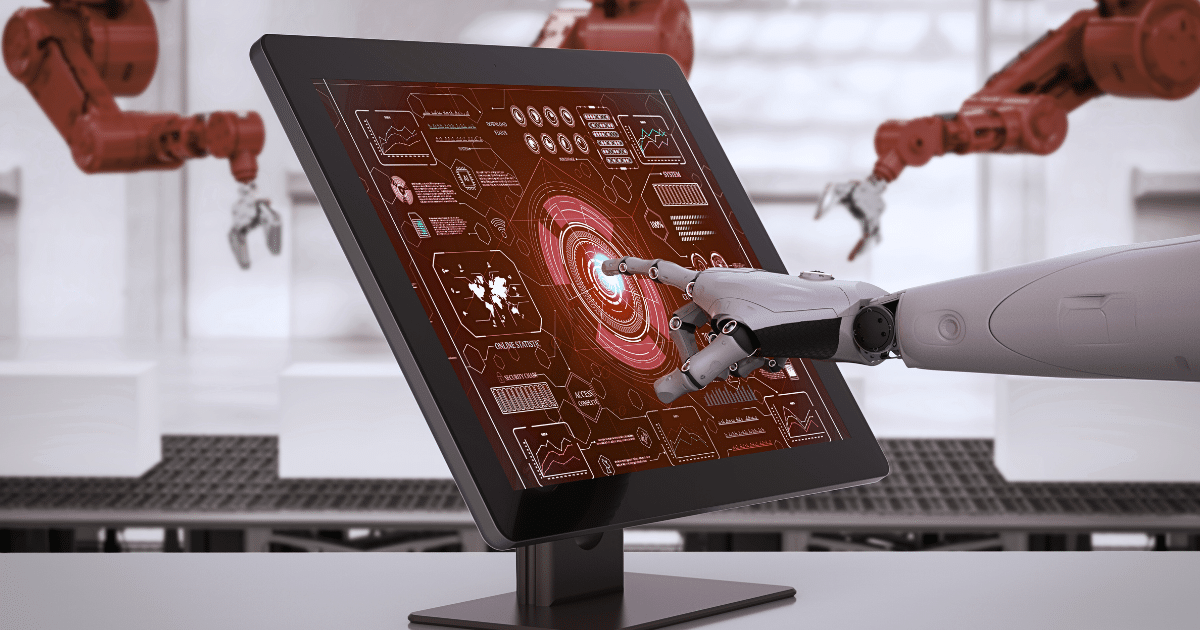Artificial Intelligence (AI) is transforming industries at an unprecedented pace. From automating repetitive tasks to enhancing decision-making, AI is reshaping the job market in ways that can be both exciting and challenging. Understanding these changes and preparing accordingly can help workers stay relevant and thrive in this evolving landscape.
The Impact of AI on the Job Market
Job Automation and Displacement
AI-powered automation is replacing routine and repetitive tasks across various industries. Jobs in manufacturing, data entry, market research, administrative services and customer service are particularly vulnerable. According to studies, millions of jobs may be at risk of being replaced by AI-driven systems in the coming years.
However, it is important to note that AI is not only eliminating jobs but also altering the nature of existing ones. Some roles may see a significant reduction in demand, but others may evolve to require human oversight and decision-making. Automation will primarily affect low-skilled and routine-based jobs, whereas roles that require human interaction, creativity, and problem-solving are expected to remain resilient.
Displaced workers face significant challenges, and policy measures such as enhanced unemployment insurance and retraining programs are essential to help them transition to new roles and secure future employment. Research indicates that AI could exacerbate existing inequalities without proactive policy action to ensure equitable access.
Emergence of New Jobs
While AI will displace some roles, it will also create new job opportunities. Fields like AI ethics, data science, machine learning engineering, and cybersecurity are expanding rapidly. AI specialists and professionals skilled in leveraging AI technologies will be in high demand.
Moreover, industries that integrate AI into their operations will require individuals to oversee and optimise these technologies. Roles such as AI trainers, robotics engineers, and AI-assisted healthcare professionals are emerging as new career paths that never existed before. Additionally, AI’s influence is generating a greater need for policy-makers and legal experts to navigate ethical concerns and regulatory frameworks surrounding AI implementation.
Transformation of Existing Roles
Many jobs won’t disappear but will evolve. AI will assist workers by automating mundane tasks, allowing them to focus on more creative and strategic aspects of their roles. For instance, marketers can use AI for data analysis, freeing up time for campaign creativity and customer engagement.
Similarly, professionals in finance and accounting are leveraging AI tools to handle data-heavy tasks like fraud detection and risk assessment. AI-driven automation in these fields enables employees to concentrate on high-value activities such as financial planning and client advisory services. In healthcare, AI aids in diagnosing diseases and personalising treatments, enhancing efficiency without eliminating the need for human doctors and nurses.
Greater Demand for Soft Skills
As AI takes over technical and analytical tasks, human-centric skills such as creativity, critical thinking, emotional intelligence, and problem-solving will become more valuable. Employers will seek professionals who can collaborate effectively and bring a human touch to AI-enhanced processes.
With AI automating data-heavy tasks, human workers will be required to focus more on interpersonal interactions, strategic thinking, and ethical considerations. Leadership, negotiation, empathy, and adaptability will become increasingly crucial as AI continues to influence decision-making processes in businesses and organisations.
Tips to Adapt to an AI-Driven Job Market
Develop Tech and Digital Skills
Understanding AI and related technologies will be essential for career growth. Learning programming, data analytics, and AI basics can give professionals a competitive edge. Online courses, boot camps, and certifications can help build these skills.
Additionally, acquiring knowledge of AI-based software and platforms relevant to specific industries can help professionals remain indispensable. For example, if you’re involved in Marketing, use ChatGPT, Jasper, or Midjourney for content creation or if you’re a Designer, experiment with Adobe Firefly and Runway ML. In terms of Programming, you could leverage GitHub Copilot for debugging and code generation and Admin & Customer Service you could explore AI-driven scheduling and chatbot tools.
Embrace Lifelong Learning
The fast-paced nature of AI advancements means continuous learning is crucial. Stay updated on industry trends, attend workshops, and seek training opportunities to remain relevant in your field.
Many industries are already adapting to AI-driven processes, and professionals who fail to keep up with technological advancements risk being left behind. Investing in lifelong learning, whether through formal education, online courses, or industry certifications, is essential to maintaining a competitive advantage in the workforce.
Cultivate Soft Skills
While technical expertise is valuable, soft skills like adaptability, leadership, communication, and teamwork will set professionals apart. Employers will prioritise individuals who can navigate change and collaborate effectively with AI tools.
Developing interpersonal skills, problem-solving abilities, and emotional intelligence can enhance employability in a world increasingly influenced by AI. Professionals who can effectively communicate and build relationships will be essential in workplaces that combine human expertise with AI-driven solutions.
Leverage AI in Your Work
Instead of fearing AI, learn how to use it to enhance productivity. AI tools can assist in automating tasks, analysing data, and improving decision-making. Familiarising yourself with AI-driven platforms can make you more efficient and valuable in your role.
Many professionals are already using AI-driven software to streamline their workflows. Writers use AI-powered tools for content generation and editing, financial analysts leverage AI for predictive modelling, and customer service representatives utilise AI chatbots for handling routine inquiries. Learning how to integrate AI into daily tasks can help professionals stay ahead of the curve.
Explore New Career Paths
If your current job is at high risk of automation, consider pivoting to an AI-resilient career. Fields such as AI development, cybersecurity, healthcare technology, and UX design are growing and less likely to be fully automated.
Researching and identifying careers that align with AI advancements can be beneficial in securing long-term job stability. Roles in AI ethics, machine learning, digital transformation, and AI-driven business strategy are becoming increasingly significant as AI continues to shape industries.
Stay Flexible and Open to Change
AI-driven changes in the job market will continue to evolve. Staying adaptable and open to learning new skills or switching industries can help professionals navigate uncertainties and seize emerging opportunities.
Embracing change rather than resisting it will be crucial for long-term career success. Being willing to upskill, reskill, and transition into AI-integrated roles will enable professionals to stay relevant and take advantage of new job opportunities in an AI-driven world.
AI isn’t some threat looming on the horizon, it’s already woven into the fabric of work. Whether you’re just starting out or you’re deep into your career, the ability to adapt and work with AI is fast becoming a non-negotiable skill.
So don’t just ask “How do I protect my job from AI?”
Instead ask “How do I use AI to grow, evolve, and create more value than ever?”
Those who answer that question, and act on it, won’t be replaced. They’ll be leading.
At GRS Recruitment, we understand the evolving job market and the skills required to thrive in an AI-driven world. Whether you’re seeking new opportunities or looking to future-proof your career, our expert Recruitment Consultants can help you navigate this changing landscape. Get in touch today to explore how we can support your career growth.

